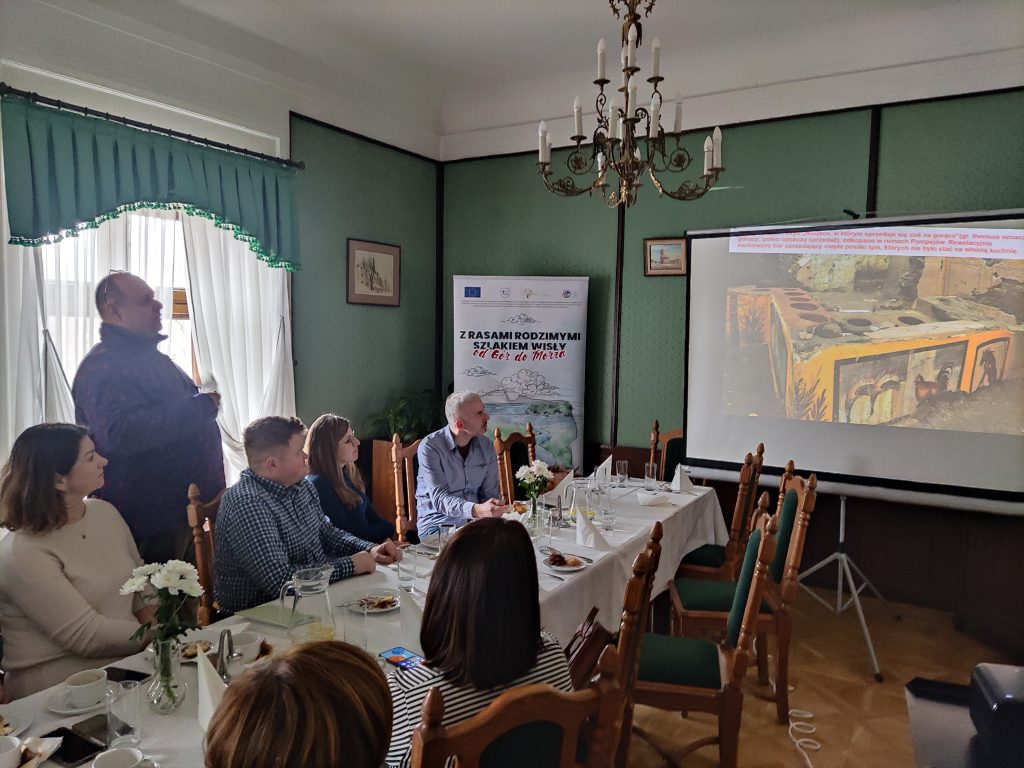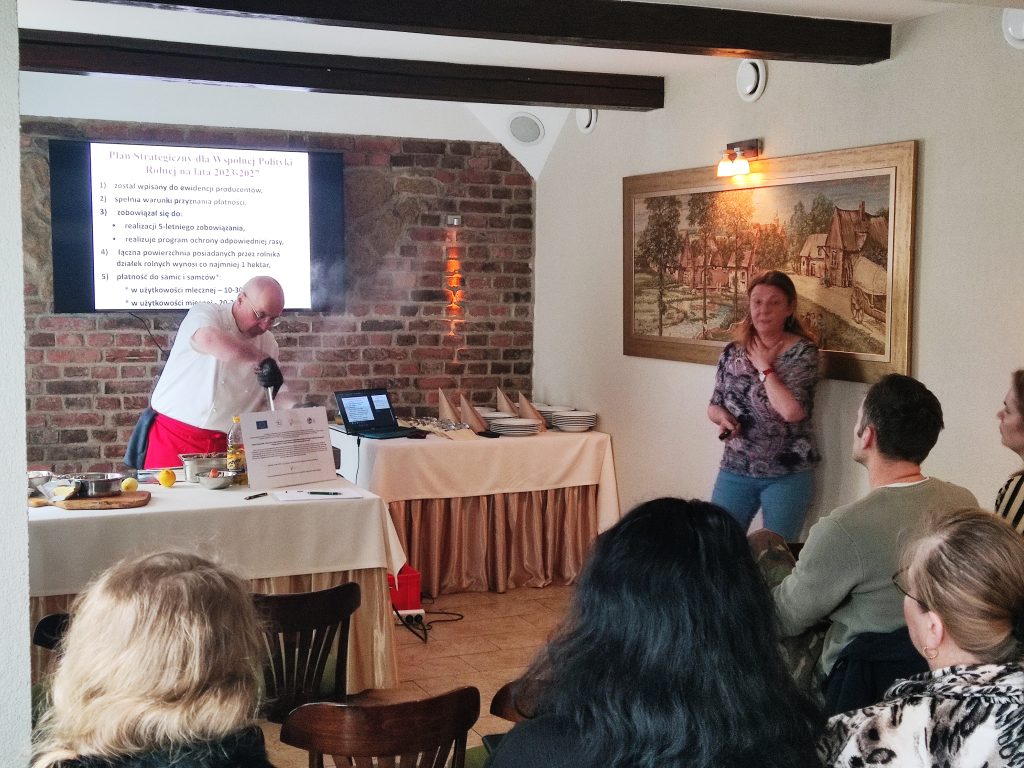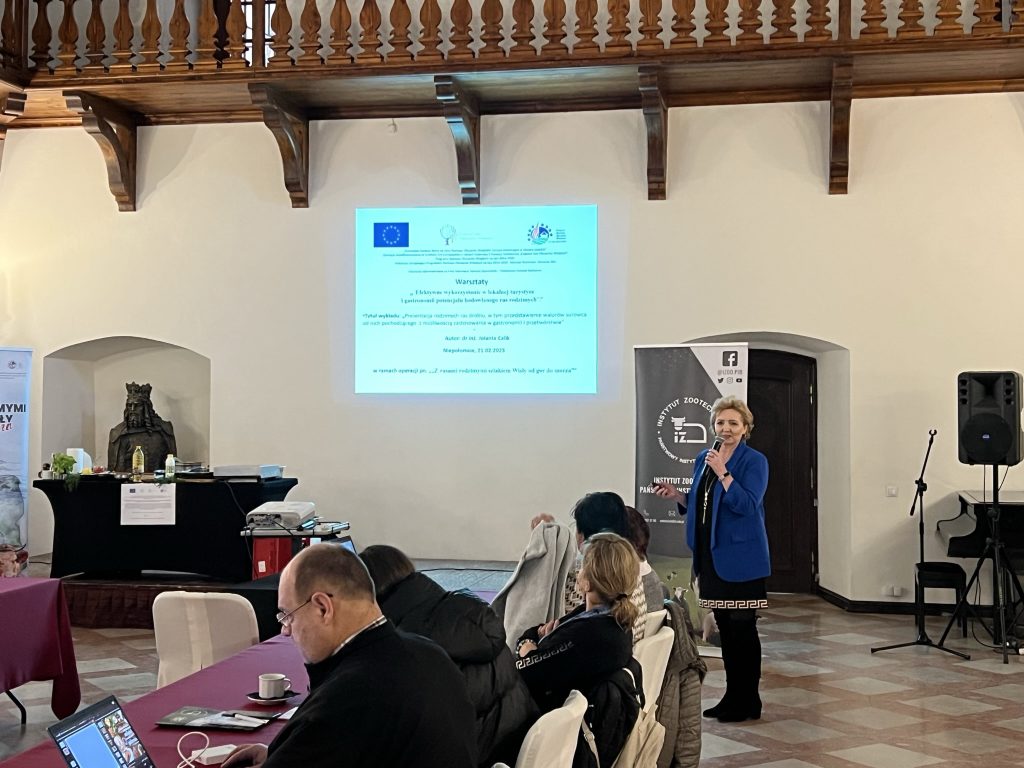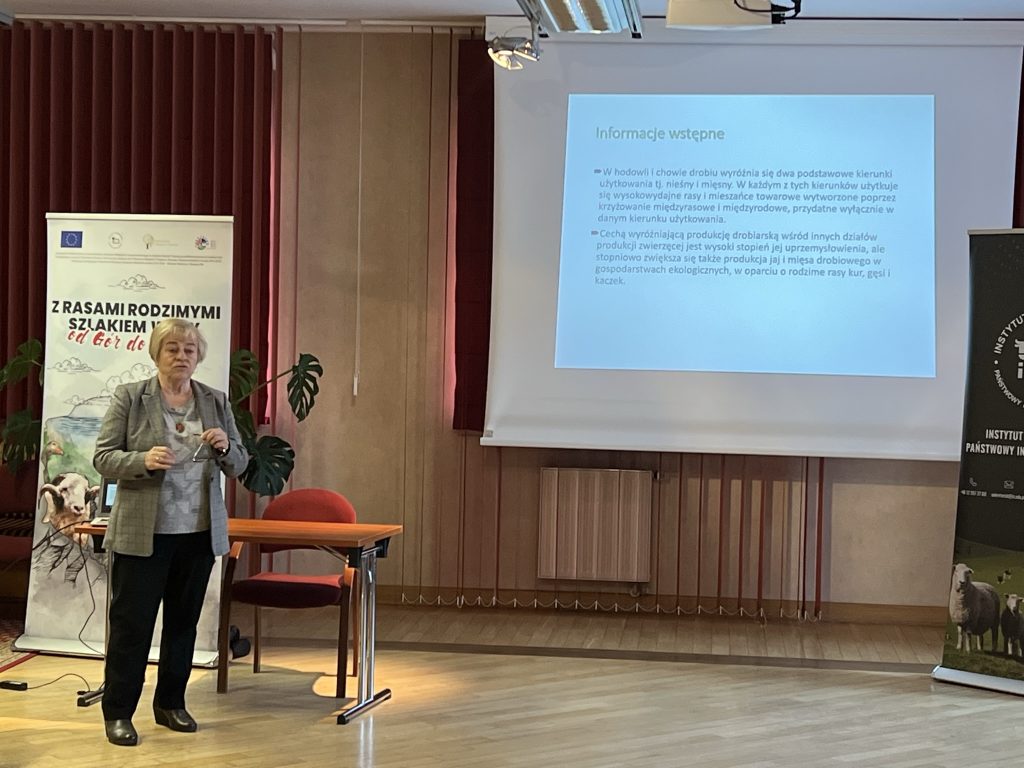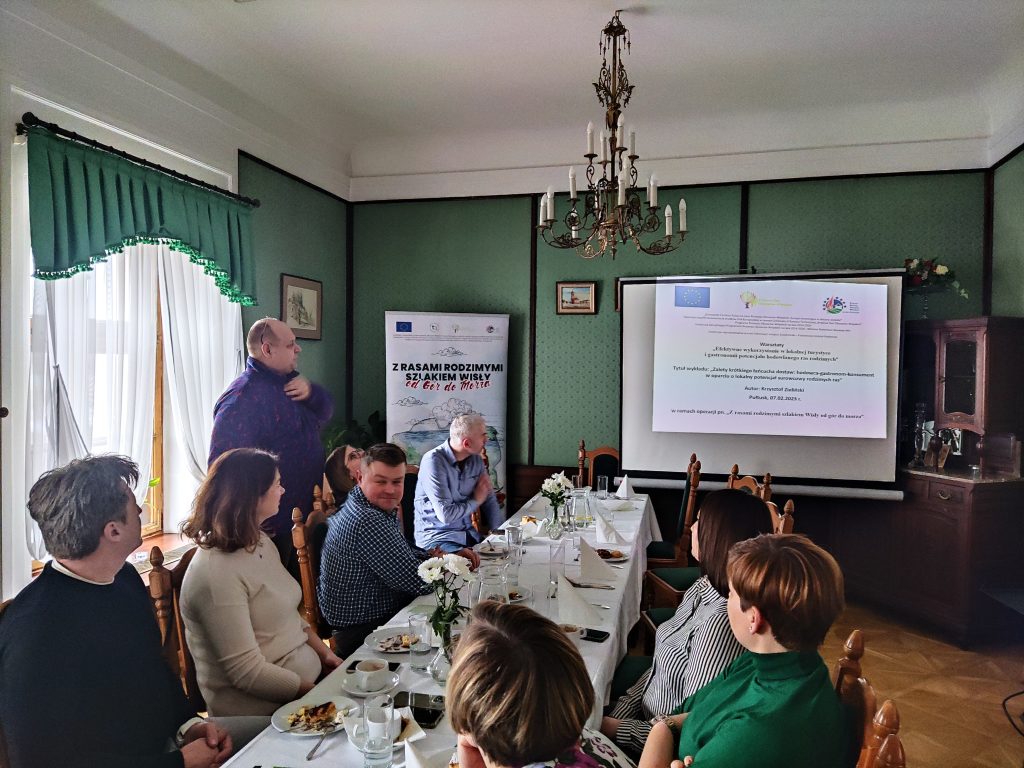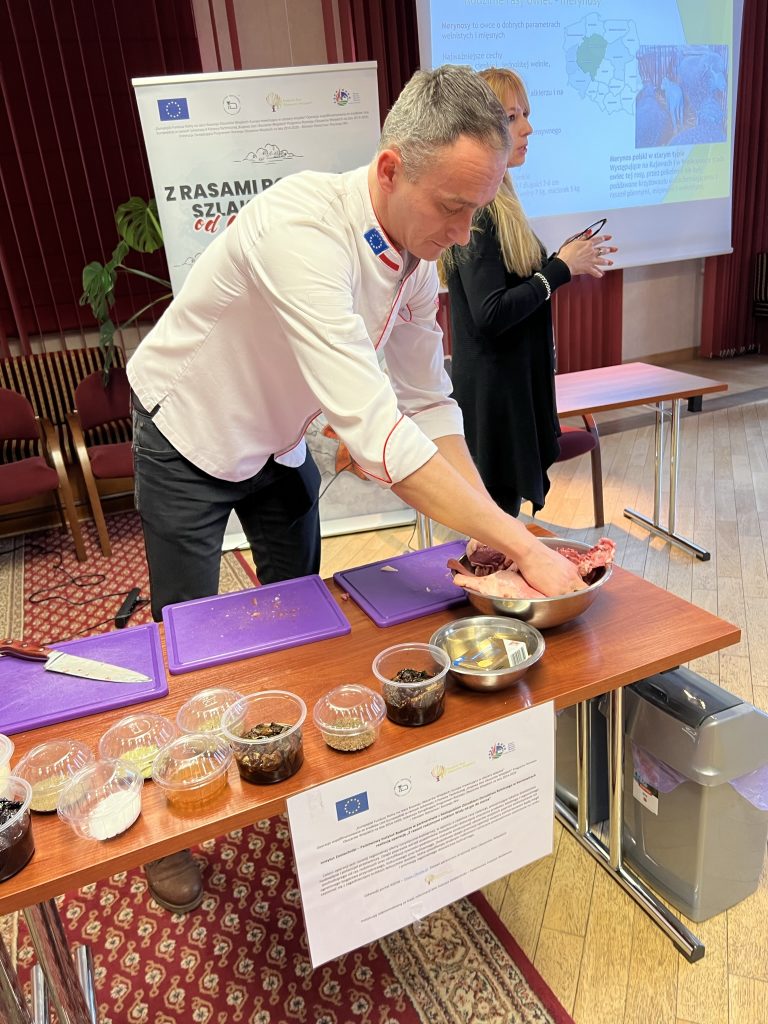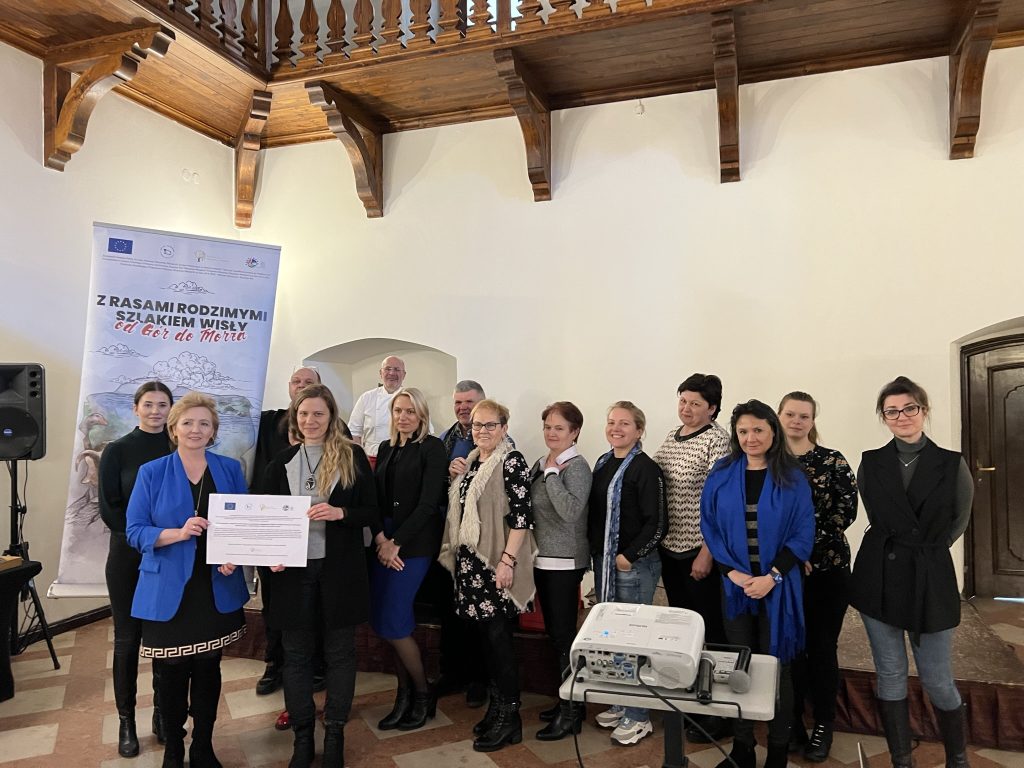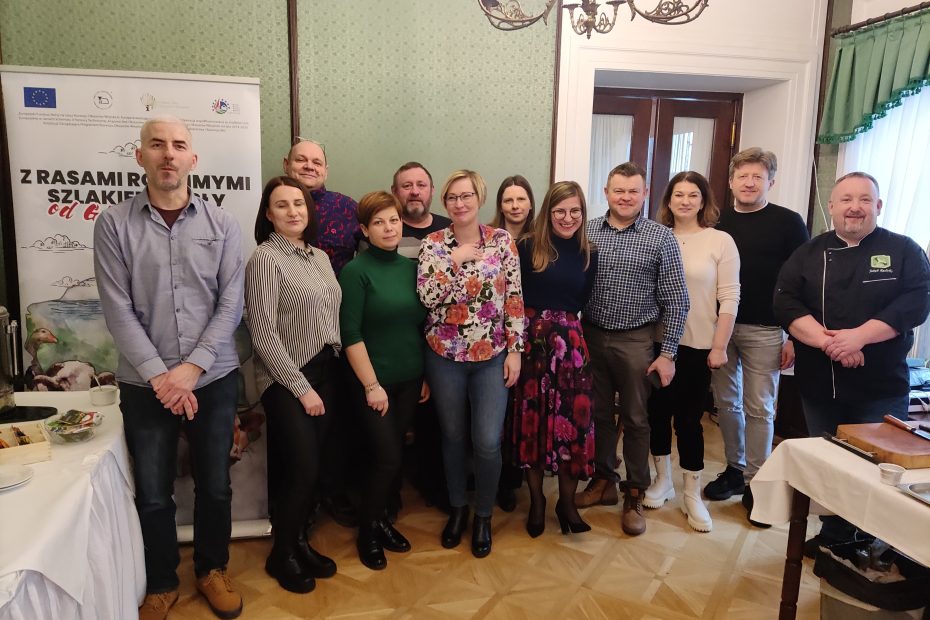From 23 January to 22 February 2023, an educational and culinary workshop entitled “Effective use of the breeding potential of native breeds in local tourism and gastronomy” took place as part of the operation “With Native Breeds on the Mountains to Sea Trail along the Vistula River”. The workshops, attended by 130 participants (representatives of science, local and government administration, associations, processors, rural housewives’ associations), organized by the National Research Institute of Animal Production in partnership with the Małopolska Agricultural Advisory Centre in Karniowice, were the second stage of the operation. They were organized in eight voivodeships along the Vistula trail, and gastronomic facilities located on tourist and culinary routes were selected as the venues for the meetings. In addition, these were regions where native breeds of livestock are available.
The workshops followed the same model. What changed was the selection of breeds for each location.
- 23 January 2023 – Zajazd Bartnik (Tylawa 54A, 38-450 Tylawa, Subcarpathian Voivodeship)
- 26 January 2023 – Insomnia Restaurant (12 Marii Curie Skłodowskiej Street, 20-029 Lublin, Lubelskie Voivodeship)
- 1 February 2023 – Życie Gruzji (2 Kąkolowa Street, 86-031 Osielsko, Kuvavian-Pomeranian Voivodeship)
- 2 February 2023 – Winne Grono (17a Mikołaja Kopernika Street, 80-208 Gdańsk, Pomeranian Voivodeship)
- 7 February 2023 – Zamek Pułtusk Dom Polonii (11 Szkolna Street, 06-100 Pułtusk, Masovian Voivodeship)
- 9 February 2023 – Hotel Basztowy (2 Józef Poniatowski Square, 27-600 Sandomierz, Świętokrzyskie Voivodeship)
- 21 February 2023 – Restauracja Zamku Niepołomice (2 Zamkowa Street, 32-005 Niepołomice, Małopolskie Voivodeship)
- 22 February 2023 – Dwór Bismarcka (29 Oświęcimska Street, 41-400 Mysłowice, Silesian Voivodeship)
In the theoretical part, experts discussed the following issues:
- native breeds of sheep and goats, including the qualities of their raw material with the possibility of application in catering and processing – Michał Puchała Ph.D. Eng. (Pułtusk, Mysłowice), Marta Pasternak Ph.D. Eng. (Niepołomice), Prof. Bronisław Borys Ph.D. (Osielsko), Jacek Sikora Ph.D. Eng. (Tylawa), Aldona Kawęcka Ph.D., Prof. of NRIAP (Sandomierz),
- native breeds of cattle, including the qualities of their raw material with the possibility of application in catering and processing – Ewa Sosin Ph.D. Eng. (Tylawa, Lublin, Pułtusk), Anna Majewska Ph.D. Eng. (Mysłowice),
- native breeds of pigs, including the qualities of their raw material with the possibility of application in catering and processing – Magdalena Szyndler-Nędza Ph.D. (Lublin, Gdańsk),
- native breeds of hens, geese and ducks, including the qualities of their raw material with the possibility of application in catering and processing – Jolanta Calik Ph.D. Eng. (Niepołomice), Prof. Józefa Krawczyk Ph.D. (Sandomierz), Halina Bielińska Ph.D. Eng. (Osielsko, Gdańsk),
- advantages of a short supply chain: breeder-gastronomer-consumer, based on local raw material potential of native breeds – Krzysztof Zieliński M.Sc. (Tylawa, Lublin, Gdańsk, Pułtusk, Sandomierz, Niepołomice, Mysłowice), Piotr Lenart M.Sc. (Osielsko).
Each presentation was accompanied by a substantive discussion and exchange of mutual views and experiences. In the practical part entitled “Effective use of local native breeds in the tourist and gastronomic offer of the region”, culinary experts: Andżelika Chorąży (Tylawa, Lublin, Gdańsk), Bartosz Grzywacz (Niepołomice, Mysłowice), Błażej Mirota (Osielsko), Jakub Rudziks (Pułtusk) and Mariusz Bezak (Sandomierz) presented the making of dishes from native lamb, pork, goose, duck and beef. The classes were prepared in a professional manner and their subject matter was met with great interest. On more than one occasion, the participants, whose commitment was evident, were able to take an active part in preparing the dishes. This will certainly translate into the development of a regional tourist and culinary offer based on native breeds.
The knowledge and information provided to representatives of local initiatives and other rural development stakeholders on the use of the breeding, culinary and tourist potential of native breeds will make it possible to promote the idea of agricultural retailing and short supply chains as an element allowing farmers to obtain an additional source of income and influencing the development of entrepreneurship in rural areas.
